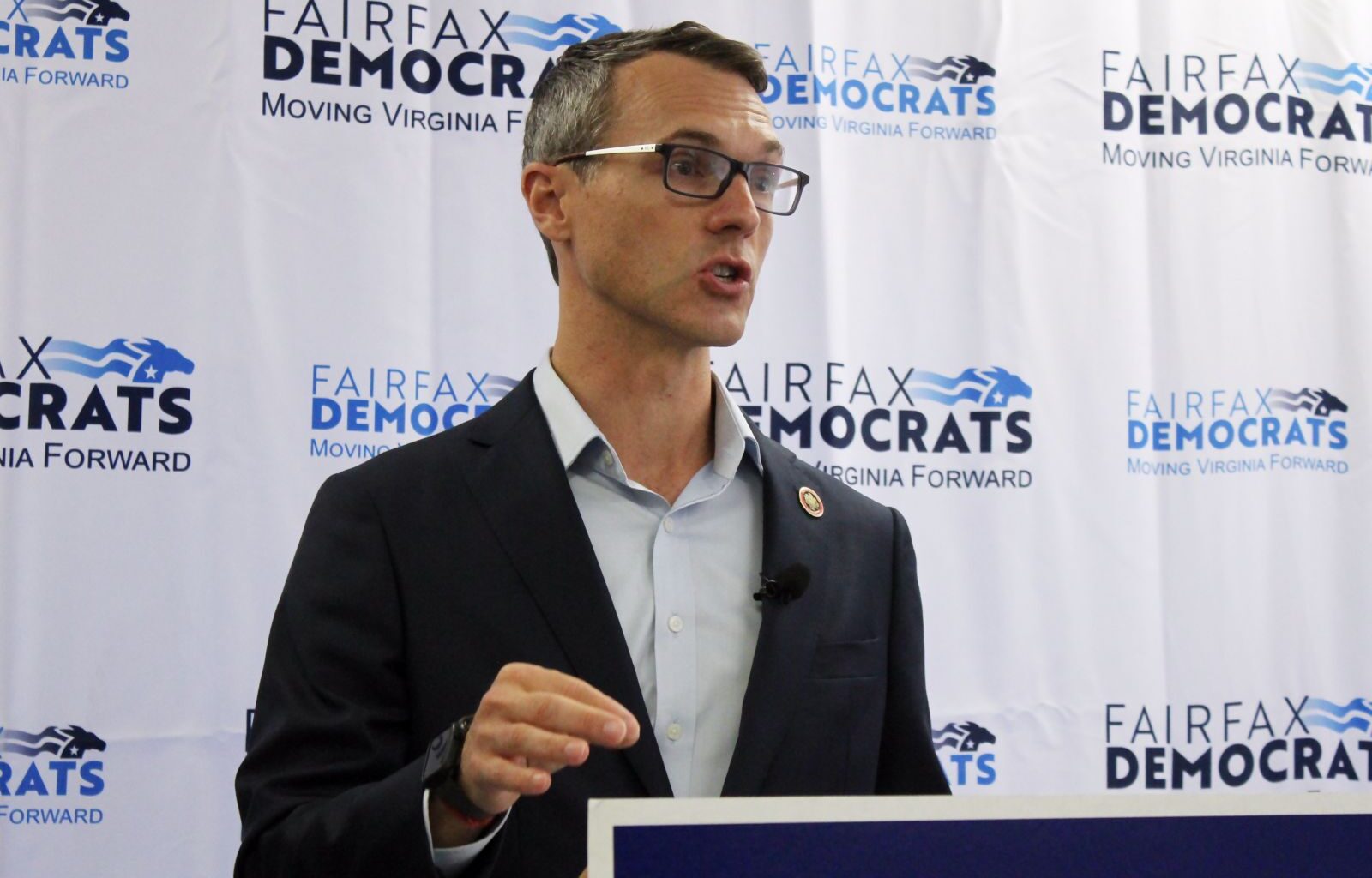Fairfax County’s newest Congressman is taking on the Department of Government Efficiency (DOGE) less than a week after taking office.
Rep. James Walkinshaw, sworn in to represent Virginia’s 11th Congressional District last Wednesday, officially co-sponsored the “Delete DOGE Act” last week, fulfilling a campaign promise to target the agency behind widespread federal workforce cuts.
“Federal workers are our neighbors, our friends, and our families, and throughout the campaign trail it was clear that everyone in Fairfax knows someone who has been impacted by DOGE’s indiscriminate firings,” Walkinshaw said in a statement provided to FFXnow.
The legislation was introduced earlier this year to prohibit the use of federal funds for DOGE initiatives, thereby dramatically handcuffing the department’s abilities to do much of anything if the bill took effect.
But since being introduced in April, the bill remains with the House Committee on Oversight and Government Reform. No votes on the bill have been held, with the legislation unlikely to be considered by the current Republican-controlled Congress.
Walkinshaw is the bill’s 14th co-sponsor. Aside from D.C. Del. Eleanor Holmes Norton, who is a non-voting member of the House of Representatives, Walkinshaw is the only co-sponsor of the bill from the D.C.-area.
On the campaign trail, Walkinshaw regularly highlighted the impact of DOGE on Fairfax County and the 11th District, which employs one of the highest percentages of federal employees in any Congressional district nationwide.
“I will be working to shine a light on some of these most egregious examples of mistreatment of federal employees, in the hopes that somebody somewhere in the Trump administration has a shred of conscience and will do the right thing,” Walkinshaw said last month.
Since his swearing in, the freshman lawmaker has also introduced a bill of his own: the “Limit on Sweeping Executive Reorganization Act,” which would prevent any president “from unilaterally dismantling or hollowing out federal agencies without Congressional approval.”
If enacted, the legislation would require any plans to “cut large numbers of federal employees, slash budgets or outsource core government functions” to be approved by Congress, preventing unilateral action in that arena via executive order.
The bill would also “preserve the merit-based civil service system that has served Americans for more than a century,” according to a press release.
“The work is only beginning,” Walkinshaw said. “In the days ahead, I will champion additional legislation to ensure our civil workforce has the security and respect it deserves.”
The House of Representatives will recess next week before returning for a two-day session starting Sept. 29.
